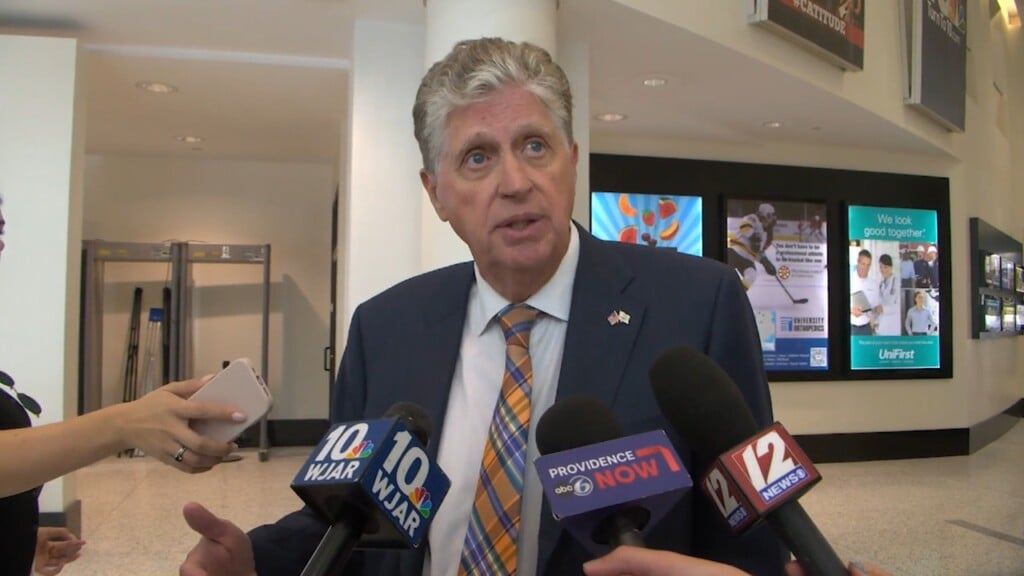URI hosts free workshops for educators on impact of AI on K-12 education
SOUTH KINGSTOWN, R.I. (WLNE) — Dozens of educators from across Rhode Island were at URI for an AI workshop to find a balance in how they think about artificial intelligence, not as a sign of the end times, or a catch-all answer.
“This is really the wild west right now in terms of how AI is going to be leveraged with students in the classroom. There’s no firm rules that have been established from RIDE at this point, so, we’re all trying to figure out what the best way to utilize it with students – and also to utilize it ourselves as educators,” said Robert Shield, ELA teacher at Narragansett Pier Middle School.
Right now, there are a lot of questions about how AI should be implemented in education.
Educators are well aware that AI is on its way, and it’s already a major part of some of their classrooms.
“I know that it’s heavily integrated into what we’re doing already, and it’s going to become more so as we go,” said Jim Chandley, Computer Science teacher at Alvarez High School in Providence.
“It’s one of those things that, when a big storm comes all of the sudden, everybody goes ‘oh my god the destruction’ or the changes that happen right? This is sort of baked in more like, rain in April. Where you’re just like yeah, it’s April, it’s going to rain a lot,” said Chandley.
Today’s course was part two for educators learning about the benefits and risks of artificial intelligence, coming just a week after the kick-off of Rhode Island AI Task Force.
The goal isn’t to make educators experts, it is to make sure they’re literate enough to keep up, and make sure they can help students know how to use these tools without abusing them.
“At what level does it become cheating? So is the tool used as an assistant to help students brainstorm ideas when they are stuck in a writing project, or are they just asking it to generate an essay for them,” said Vanessa Miller, Lead Facilitator on AI at the URI Workshop.
“So it comes back to literacy, it comes back to students understanding this tool and what it can do for them. But before they can understand how to use it, they have to understand how it works, so that should be really the first step,” she added.
The last day of classes is with administrators tomorrow, looking to talk about some of the broader rules that may be needed as AI becomes a bigger part of education.



